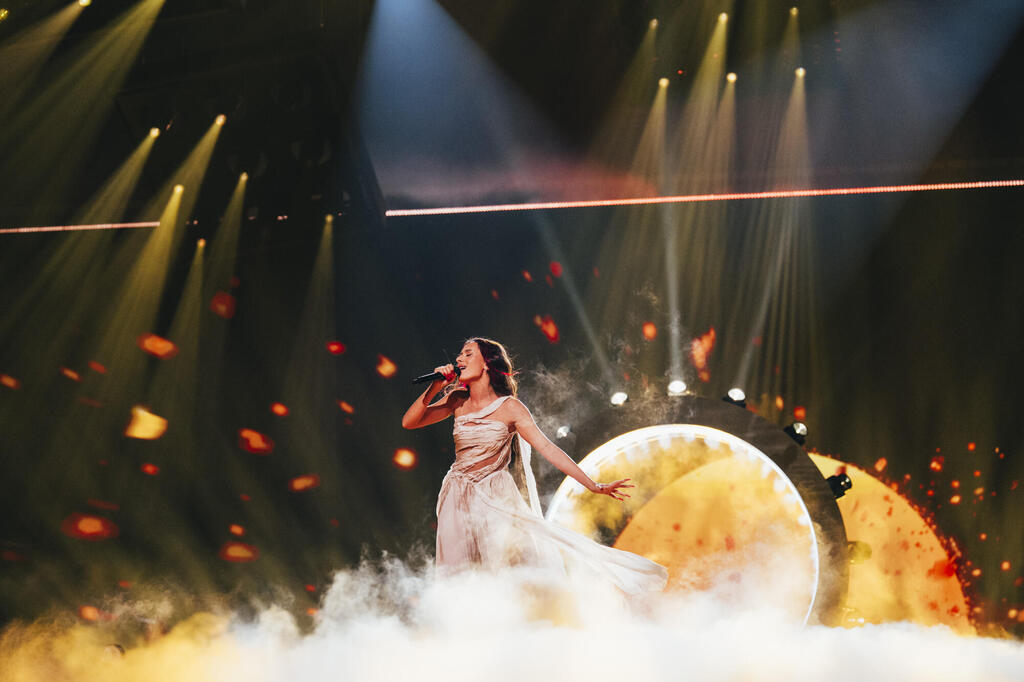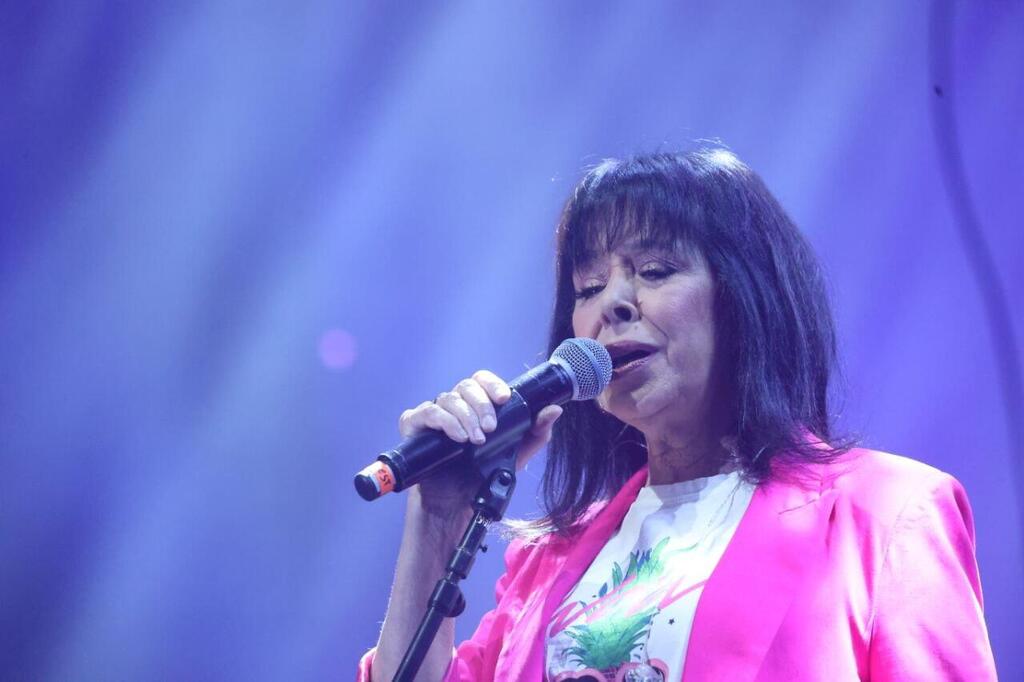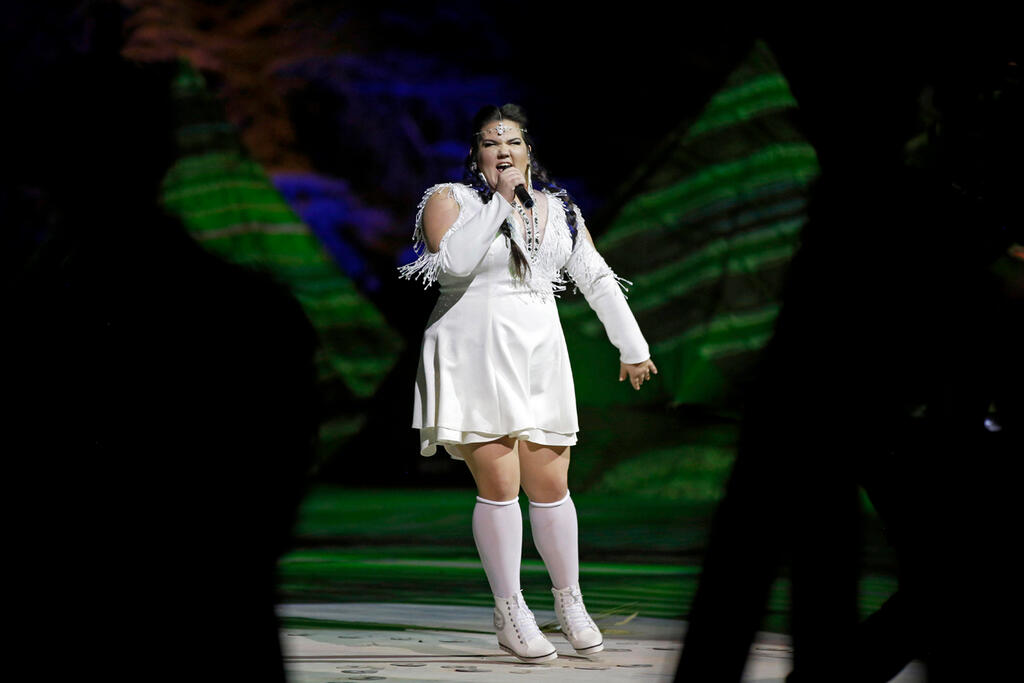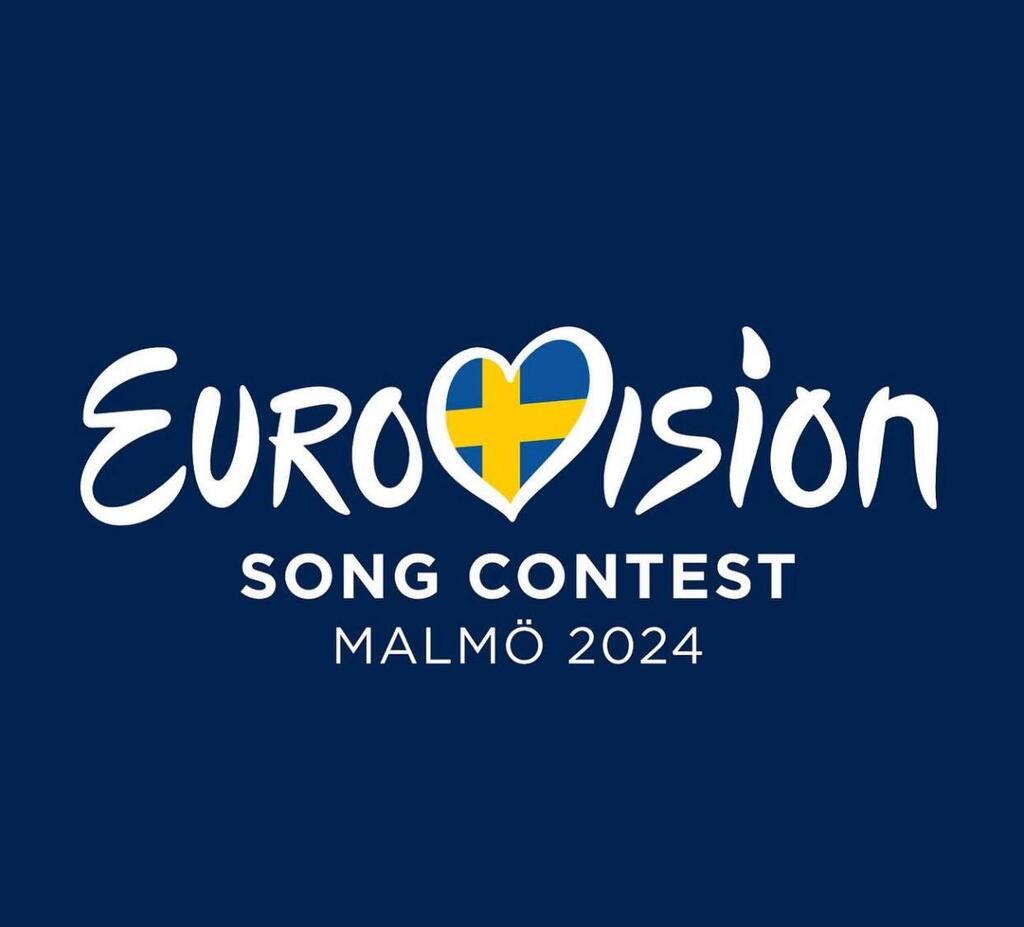While the war wages on in Gaza, Israel was pressured to change the lyrics of its' entry in the Eurovision Song Contest after the European Broadcasting Union (EBU) found them too political for the tense environment around this year's competition, set to kick off in Malmo, Sweden on Tuesday.
This year's Israeli representative is Eden Golan, but she comes after a long list of artists from the country, some who have won first prize. Here's what you need to know:
The Origins of Eurovision
The Eurovision Song Contest began as a multinational, European experiment in television broadcasting. Since the first competition in 1956, dozens of countries, not all European, have joined, including Australia, Israel and Morocco. The first Eurovision Song Contest was held on May 24, 1956, with seven nations competing: the Netherlands, Switzerland, Belgium, Germany, France, Luxembourg and Italy. Austria and Denmark wanted to take part but missed the deadline, and the United Kingdom sent its apologies as the country was busy with its' own national song contest that year.
Over the years, the format has evolved into the flashy week-long, boundary-pushing, technologically innovative, multi-show spectacular that seems to mainly interest the participating countries and even then, not greatly.
How did the Eurovision Song Contest first come about?
As television services were introduced in most European countries in the middle of the 20th century, EBU created the Eurovision Network in 1954 for the exchange and production of common television programs, to cost-effectively increase the programming material for national broadcasting organizations.
The proposal for the Eurovision Network had come from Marcel Bezencon, the director general of the Swiss Broadcasting Corporation. But the idea for the Eurovision Song Contest would come from RAI, the Italian National Broadcasting Organization. RAI began regular television service in January 1954, although the first experimental television broadcast in Italy was in Turin in 1934.
The most popular and successful program that the Eurovision Network would produce would be its namesake: the Eurovision Song Contest. After the Eurovision Network broadcast its first programs in 1954 in Belgium, Denmark, France, Italy, the Netherlands, Switzerland, the United Kingdom and (what was then) West Germany, discussions ensued in the EBU as to how its co-productions could be made more entertaining and spectacular.
The inspiration for the song contest came was the Sanremo Italian Song Festival, held in the seaside resort town by the same name starting in 1951. Members of the program committee attended the Italian festival in 1955, when it was also broadcast through the Eurovision Network.
However, Sanremo was not the only song contest in Italy at the time. In the mid-1950s, the City of Venice and RAI organized the International Song Festival. The first edition in 1955 included entries submitted by the radio services of EBU members from Austria, Belgium, France, Italy, Monaco and the Netherlands. They each submitted six original songs that were no longer than three and a half minutes, with the entries being voted on by national juries and the winner being awarded the Golden Gondola prize.
The Venice International Song Festival was therefore similar in its structure to the current Eurovision Song Contest, but was broadcast on radio. Still, it was the world’s first-ever international song contest based on the participation of national broadcasting authorities, and some of its participants would go on to compete in the Eurovision Song Contest.
Yet, for technical reasons, the first Eurovision Song Contest in 1956 was not held in Italy but in Switzerland. That's because its geographic centrality in Europe made it a natural node for the terrestrial transmitters required for this experiment in live, simultaneous, transnational broadcasting. In addition, the EBU’s headquarters were in Switzerland. But the first Eurovision Song Contest still reflected an international fashion for Italian popular culture, as it was staged in the Swiss-Italian city of Lugano and was hosted in Italian.
Eurovision changed over time
In the first few contests, it seemed obvious to participating countries that they should enter songs in their native tongue, but as the event expanded and grew in popularity, songwriters began to assume that the more universal the lyrics, the more likely it was that the song would resonate with juries. This led most countries to send in songs in English.
Besides changing the rules regarding language, other adjustments included altering the number of performers allowed on stage, the inclusion of dance moves and, more recently, the use of vocal tracks (brought in to reduce the number of delegation members needed to travel during the COVID-19 pandemic).
Israel in Eurovision
Israel qualified to participate in 1972's Eurovision Song Contest because it was part of the EBU, but missed the registration deadline. Therefore, Israel's Eurovision debut took place in 1973, months before the Yom Kippur War, and has since participated 45 times, winning the contest four times.
Because the competition is highly political, (Israel is historically unlikely to win during wartime or amid military operations, and Ukraine won the contest during the first year of the Russia-Ukraine War), Israel does not expect to win the upcoming competition.
Israel's first two consecutive Eurovision victories were in 1978 and 1979 with Izhar Cohen's "A-Ba-Ni-Bi" and Milk and Honey's "Hallelujah." It is customary that the winning country hosts the next Eurovision contest. Israel hosted the 1979 contest and joined the exclusive group of countries that won while hosting the event for the first time.
Israel's third win is credited to Dana International, Israel's first transgender Eurovision representative, who rocked the stage with the fitting song, "Diva" in 1998. After Dana's victory, it took Israel 20 years to win again. Netta Barzilai's win with the song "Toy" in Lisbon in 2018 brought the contest back to Israel for a 21st-century production.
Following the endless drama that accompanied this year's song selection process, Eden Golan will represent Israel with an altered version of the song "Hurricane." Despite the rampant antisemitism in Malmo, Sweden and the Gaza war underway, Golan is poised to take the stage on Thursday's second semi-final and give it her all.
The most common thought about the Eurovision Song Contest in Israel is that we have no chance of winning if the contest coincides with military operations or war. With the odds not in our favor this year due to the complex reality of war, we wish Eden Golan the best of luck.





